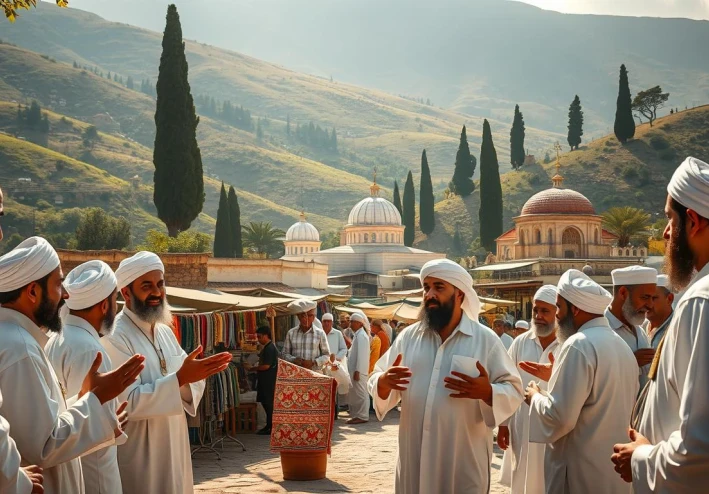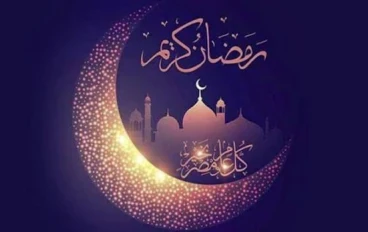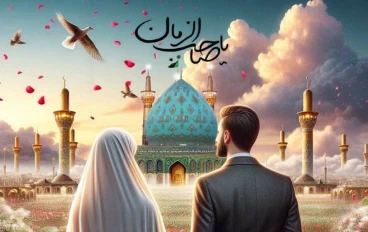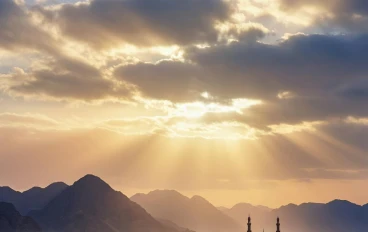
The Druze people
الدروز
The Druze people have a rich history and culture that spans centuries, with a unique blend of Islamic, Christian, and Jewish influences.
Their faith, known as the Druze faith, is a monotheistic religion that emphasizes the importance of tolerance and coexistence.

Edit
Full screen
Delete
الدروز
The Druze culture is characterized by a strong sense of community and a deep connection to their heritage.
Key Takeaways
- The Druze people have a distinct cultural identity shaped by their history and faith.
- Their culture is a blend of various religious influences.
- The Druze faith emphasizes tolerance and coexistence.
- The community is known for its strong social bonds.
- The Druze culture is rich in traditions and customs.
The Historical Origins of the Druze Faith
The historical roots of the Druze faith are deeply embedded in the 11th-century Fatimid era. This period was marked by significant religious and political developments in Egypt, which ultimately led to the emergence of the Druze as a distinct religious group.
The 11th Century Emergence in Fatimid Egypt
The Druze faith originated during the reign of the Fatimid caliph Al-Hakim bi-Amr Allah in the 11th century. This era was characterized by a mix of religious tolerance and political turmoil, creating a fertile ground for new religious movements to emerge. The Fatimid dynasty, known for its Ismaili Shia beliefs, played a crucial role in shaping the early Druze faith.
The Founding Figures: Al-Hakim and Hamza ibn Ali
Two key figures are central to the founding of the Druze faith: Al-Hakim bi-Amr Allah and Hamza ibn Ali. Al-Hakim, the sixth Fatimid caliph, is considered by the Druze to be a divine figure, while Hamza ibn Ali, a Persian mystic, is regarded as his prophet. Hamza ibn Ali's teachings and interpretations of Al-Hakim's divinity formed the theological basis of the Druze faith.
Migration and Settlement Throughout the Levant
Following their emergence in Fatimid Egypt, the Druze community migrated to and settled in various regions of the Levant, including present-day Lebanon, Syria, and Israel. This migration was driven by persecution and the search for safe havens. The Druze established themselves in mountainous regions, where they could maintain their religious identity and practices.
| Region | Significance to Druze | Historical Impact |
| Fatimid Egypt | Birthplace of the Druze faith | Influenced early Druze theology |
| Lebanon's Chouf Mountains | Stronghold for Druze communities | Preserved Druze identity |
| Syria's Jabal al-Druze | Key settlement area | Played a significant role in Druze history |
Core Beliefs and Religious Philosophy of الدروز
At the heart of Druze spirituality lies a complex philosophy that encompasses various principles, including Tawhid and reincarnation. The Druze faith is characterized by a distinct set of religious and philosophical tenets that guide their spiritual practices and daily lives.
Tawhid: The Unitarian Monotheistic Principle
The Druze believe in Tawhid, or the unitarian monotheistic principle, which emphasizes the oneness of God. This belief is central to their religious philosophy and is reflected in their spiritual practices.
The Concept of Reincarnation and Soul Transmigration
The Druze also believe in reincarnation, with the soul transmigrating to a new body after death. This belief is seen as a means of spiritual growth and is closely tied to their understanding of the soul's journey towards perfection.
The Seven Pillars of Druze Faith
The Seven Pillars of Druze Faith are fundamental to the Druze religious practice. These pillars include:
- Truthfulness in Speech: The importance of honesty and integrity in one's words and actions.
- Protection of Fellow Druze: The duty to protect and support members of the Druze community.
- Rejection of Other Religions: The renunciation of other faiths and the embracing of the Druze belief system.
- Renunciation of worldly attachments and desires.
- Recognition of the unity of God and the legitimacy of the Druze faith.
- Submission to the will of God.
- Acceptance of the divine decree.
Truthfulness in Speech
Truthfulness is considered a cornerstone of Druze ethics, emphasizing the importance of being truthful in all interactions.
Protection of Fellow Druze
The protection of fellow Druze is a fundamental aspect of community life, highlighting the importance of solidarity and mutual support.
Rejection of Other Religions
This pillar signifies the Druze commitment to their faith, distinguishing it from other religious beliefs and practices.
Taqiyya: Religious Dissimulation for Protection
The Druze practice Taqiyya, or religious dissimulation, as a means of protecting themselves from persecution. This practice allows them to conceal their true beliefs when necessary, ensuring their safety and security.
Sacred Texts and Religious Practices
The Druze community's spiritual foundation is built upon sacred texts and unique religious practices. These elements are crucial in guiding the daily lives and spiritual journeys of Druze adherents.
The Kitab Al-Hikma (Epistles of Wisdom)
The Kitab Al-Hikma is a foundational text of the Druze faith, comprising epistles written by Hamza ibn Ali and other Druze leaders. It contains the spiritual and philosophical teachings that underpin the Druze belief system. This text is considered sacred and is studied by the initiated members of the community.
The Role of Majlis in Druze Worship
The Majlis plays a significant role in Druze worship, serving as a gathering of spiritual leaders who come together to discuss and interpret the teachings of the Kitab Al-Hikma. These gatherings are important for the religious and social cohesion of the Druze community.
Religious Holidays and Observances
Druze religious practices include the observance of various holidays and rituals. Two significant practices are Eid al-Adha Celebrations and Ziyarat (Pilgrimages) to Holy Sites.
Eid al-Adha Celebrations
Eid al-Adha is a significant religious holiday for the Druze, commemorating the willingness of Ibrahim to sacrifice his son. It is a period of reflection and spiritual rejuvenation for the community.
Ziyarat (Pilgrimages) to Holy Sites
The Druze also observe Ziyarat, or pilgrimages, to holy sites that are significant to their faith. These pilgrimages are an important aspect of Druze religious practice, fostering a sense of community and spiritual connection among participants.
Social Structure Within Druze Communities
The Druze community is known for its distinct social structure, which plays a crucial role in maintaining its cultural and religious identity. This structure is primarily based on religious principles and has been shaped over centuries.

Edit
Full screen
Delete
Druze community structure
The Uqqal (Initiated)
The Uqqal are the initiated members of the Druze community, who have undergone rigorous spiritual training and have achieved a high level of spiritual understanding. They are considered the spiritual leaders and are responsible for guiding the community in religious matters.
The Juhhal (Uninitiated)
The Juhhal, or the uninitiated, are still on the path to spiritual growth. They are not yet fully acquainted with the deeper teachings of the Druze faith but are considered an integral part of the community. The Juhhal look up to the Uqqal for guidance and spiritual direction.
Gender Equality and Women's Status
Druze society places a significant emphasis on gender equality. Women in the Druze community have historically enjoyed a relatively high status, with equal rights in many areas, including education and property ownership. This egalitarian approach is reflected in the active participation of women in various aspects of Druze life.
| Aspect | Uqqal | Juhhal |
| Spiritual Understanding | Advanced spiritual knowledge | Limited spiritual knowledge |
| Role in Community | Spiritual leaders and guides | Followers and learners |
| Gender Equality | Emphasized equally across both groups |
Druze Communities Around the World
From the Middle East to the Americas, the Druze people have created a worldwide network of communities. With a history spanning centuries, the Druze have established strongholds in various regions, maintaining their unique cultural and religious identity.
The Mountain Strongholds: Lebanon's Chouf and Syria's Jabal al-Druze
The Druze have historically found refuge in mountainous regions, where they could preserve their autonomy and way of life. In Lebanon, the Chouf Mountains have been a traditional Druze stronghold, while in Syria, the Jabal al-Druze region has served as a significant Druze settlement.
The Israeli Druze Community and Military Service
In Israel, the Druze community has integrated into the country's fabric, with many Druze citizens serving in the Israeli military. This service is seen as a way for Druze individuals to contribute to the state and demonstrate their loyalty. The Israeli Druze community is known for its close-knit social structure and cultural preservation.
Diaspora Communities in North and South America
Beyond the Middle East, Druze communities have been established in North and South America, primarily in the United States and Canada. These diaspora communities have maintained their religious and cultural practices, while also adapting to their new environments. The Druze diaspora has contributed to the diversity of the countries they have settled in, enriching the cultural landscape.
| Country | Estimated Druze Population | Notable Druze Communities |
| Lebanon | 250,000 - 300,000 | Chouf Mountains |
| Syria | 80,000 - 100,000 | Jabal al-Druze |
| Israel | 140,000 | Galilee, Carmel |
| United States | 5,000 - 10,000 | New York, California |
Cultural Traditions and Distinctive Practices
With a history spanning centuries, the Druze have developed distinct cultural practices that set them apart. Their cultural identity is deeply rooted in their history and faith, influencing various aspects of their daily lives and communal practices.
Endogamy: Marriage Within the Community
Endogamy, or the practice of marrying within the community, is a significant aspect of Druze cultural identity. This practice helps preserve their religious and cultural heritage by minimizing external influences. It strengthens family ties and maintains the community's cohesion.
Traditional Clothing and Symbolism
Druze traditional clothing is rich in symbolism, often reflecting their cultural values and historical context. On special occasions, Druze people wear attire that signifies their heritage, with certain garments and colors holding specific meanings. This traditional clothing serves as a visual representation of their identity and community pride.
Cuisine and Hospitality Customs
Druze cuisine is renowned for its hospitality and generosity, with traditional dishes often served to guests as a sign of respect and welcome. The community's culinary practices are deeply intertwined with their cultural values, emphasizing the importance of hosting and sharing meals with others. This hospitality is a cornerstone of Druze social life.
The Druze in Contemporary Politics and Society
As a minority group with a unique religious identity, the Druze have navigated complex political environments in Lebanon and Israel. Their political engagement reflects a balance between maintaining their cultural heritage and contributing to the broader societal fabric.
Political Representation in Lebanon and Israel
The Druze community has achieved significant political representation in both Lebanon and Israel. In Lebanon, they have been allocated parliamentary seats, while in Israel, they serve in the Knesset and have held ministerial positions. This representation has enabled the Druze to influence policies affecting their community.
| Country | Political Representation |
| Lebanon | Allocated parliamentary seats |
| Israel | Representation in the Knesset and ministerial positions |
Notable Druze Leaders and Their Influence
Druze leaders have played crucial roles in shaping the community's political trajectory. Figures such as Amal Nassereddine in Lebanon and Saleh Tarif in Israel have been instrumental in advocating for Druze interests and fostering inter-community dialogue.
Navigating Identity in Multi-Religious Societies
The Druze community faces the challenge of maintaining its distinct identity within multi-religious societies. Efforts to preserve their cultural and religious heritage are balanced with the need to integrate into the broader societal context, ensuring their continued relevance and influence.
In conclusion, the Druze community's political engagement in Lebanon and Israel demonstrates their resilience and adaptability. Through effective political representation and leadership, they continue to navigate the complexities of their identities within diverse societal contexts.
Common Misconceptions About the Druze People
The Druze community is often misunderstood, leading to numerous misconceptions about their faith and practices. Many people mistakenly believe that the Druze are a sect of Islam, when in fact, they have a distinct faith that is separate from Islam.

Edit
Full screen
Delete
Druze misconceptions
The Relationship to Islam and Other Abrahamic Faiths
The Druze faith emerged in the 11th century and is rooted in Islamic theology, but it has evolved into a unique religion with its own beliefs and practices. While the Druze revere some Islamic figures, their faith is not a part of Islam. This distinction is crucial in understanding the Druze identity.
Secrecy vs. Privacy in Druze Religious Practice
The Druze are known for their private religious practices, which has led to misconceptions about their secrecy. In reality, the Druze place a strong emphasis on privacy to protect their faith from external influences. This privacy is not about being secretive but about preserving the integrity of their religious practices.
Debunking Myths About Druze Beliefs and Customs
Many myths surround Druze beliefs and customs, often stemming from a lack of understanding. For instance, some believe that the Druze worship a deity other than God, which is not true. The Druze believe in one God and adhere to a strict monotheistic principle known as Tawhid. Educating oneself about the Druze faith can help dispel these misconceptions.
By understanding the Druze faith and its distinct practices, we can work to dispel common misconceptions and foster greater respect for this unique community.
Conclusion: The Enduring Legacy and Future of the Druze People
The Druze community has demonstrated remarkable resilience and adaptability throughout its history, maintaining a distinct identity while navigating complex geopolitical landscapes.
Their rich cultural and religious heritage, rooted in the principles of unity and reincarnation, continues to shape their daily lives and inform their interactions with the world around them.
As the Druze people look to the future, they remain committed to preserving their unique traditions and values, even as they engage with modern society and contribute to the broader cultural mosaic of the Middle East.
The Druze legacy serves as a testament to the power of community and faith, offering a compelling example of how tradition and progress can coexist in harmony, shaping a brighter future for generations to come.
FAQ
What is the Druze faith and how does it differ from other Abrahamic religions?
The Druze faith is a unique monotheistic religion that emerged in the 11th century, influenced by Islamic, Christian, and Jewish traditions. It differs from other Abrahamic religions in its belief in reincarnation and the concept of Tawhid, or the oneness of God.
Who are the Uqqal and Juhhal in Druze society?
The Uqqal are the initiated members of the Druze community, who have undergone spiritual training and have achieved a high level of spiritual understanding. The Juhhal, on the other hand, are the uninitiated members, who are still on the path to spiritual growth.
What is the significance of the Kitab Al-Hikma in Druze worship?
The Kitab Al-Hikma, or Epistles of Wisdom, is a sacred text in the Druze faith, containing the spiritual and philosophical teachings of the faith. It is considered a guide for Druze believers on their spiritual journey.
How do Druze communities around the world maintain their cultural and religious identity?
Druze communities around the world maintain their cultural and religious identity through practices such as endogamy, or marriage within the community, and the preservation of traditional customs and practices.
What is the role of women in Druze society?
Women play an important role in Druze society, with a strong emphasis on gender equality. Druze women are actively involved in various aspects of community life, including education, social welfare, and cultural preservation.
How do Druze communities interact with other religious communities?
Druze communities have a history of coexistence with other religious communities, including Muslims, Christians, and Jews. They have developed unique relationships with these communities, often based on mutual respect and understanding.
What are some common misconceptions about the Druze people?
One common misconception is that the Druze are a sect of Islam, when in fact they have a distinct faith that is separate from Islam. Another misconception is that the Druze are secretive or mysterious, when in fact they simply place a strong emphasis on privacy in their religious practice.
How do Druze communities celebrate religious holidays and observances?
Druze communities celebrate various religious holidays and observances, including Eid al-Adha, which commemorates the willingness of Ibrahim to sacrifice his son. They also observe Ziyarat, or pilgrimages, to holy sites.


































